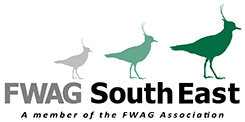


FWAG South East Farm Advice
Soil and Water Management
Our advisers know that good soil health makes for good business sense as well as providing a range of environmental benefits.
We can help to produce, review and update working documents such as:
- Soil management plans
- Nutrient management plans
- Organic manure management plans
- Diffuse water pollution plans
- Farm Yard / Point source pollution management plans
- Water pathways plans
- Flood mitigation appraisal
- Water storage review
- Biobed / reedbed advice
- Water use appraisal
- Appraisals of Countryside Stewardship measures for soil and water including Farm Management Plans
- Local water quality advice and objectives
Our advisers working in this area are FACTS qualified and accredited by BASIS in Soil and Water Management.

Soil
Soil needs to be managed well to make sure it doesn’t leave the field system in any quantity. When soil moves it takes with it the fertile topsoil needed for growing, and nutrients and chemicals that can be bound to soil particles. Soil assessment allows us to know and understand the inherent properties of the soil, such as soil texture and depth, and to plan cropping, cultivations and timing of operations. It will also feed into nutrient planning, agrochemical planning, and can tell us for example the types of rarer plants that could grow there. Soil analysis could be chemical analysis for macro, micro and trace elements, and for soil acidity (pH). We can also look at soil organic content, informing us about soil health, nutrient availability and water holding capacity. Within the soil, biological activity is an enormous and little-explored area, we can start with earthworm counts, and can measure respiratory activity and some other factors indicating soil “life” in the lab and field.
Water
Water management is about drainage and knowing where our water goes to from the field or farm, how it is filtered or can be captured on the way. Water arising from farmyards needs particular attention, but water leaving fields can also carry unwanted substances to watercourses. Water management can include irrigation for some crops, and water storage options for surface or groundwater. As the UK climate becomes generally warmer and with shorter and sharper bursts of rainfall, we need to manage water falling on yards, buildings and fields as best we can to avoid surface run-off and to mitigate flooding. Natural flood management means using different land covers such as woodland and grassland to help to absorb water in the catchment and to buffer river levels.
Nutrients
When we plan nutrients we start with what is available in the soil, look at the crop, previous cropping, applied manures and so forth, in accordance with industry standard advice from planning tools available to our FACTS Qualified advisers. We then look at available nutrients from organic sources (slurry, farm yard manure, composts) and after applying these, at inorganic fertilisers required. We can assist farmers and catchment advisers to plan nutrients and to plan to keep them in the cropping system. We work with livestock, mixed and arable farms and with a range of systems, including the increasing number of farmers growing catch and cover crops to provide soil benefits and nutrient capture over the winter months.
All our work in this area is linked to thinking about the whole farm system and the potential of the unit to farm profitably with the environment in mind. Often an area or a concept can produce multiple benefits. We try to concentrate food production where it is most rewarding, and do the same for an unproductive area, making the most of it as a watercourse buffer, woodland edge or crop for birds or insects. We can plant hedges and trees to benefit soil and water that will also help with carbon capture and wildlife habitat. Farm Management plans can cover these areas and be tailored to focus on the needs of the business and the local area.




